Opera singer Emőke Baráth is one protagonist of the Müpa drive-in concert Figaro Here, Figaro There. We could see her many times in The Marriage of Figaro, this time she will fulfill some long-term dreams when singing two arias of Cherubino. The concert revolves around the figure of Figaro who featured Rossini’s and Mozart’s respective operas. The opera singer, who experienced lockdown and restrictions due to the covid-19 pandemic in Paris, told us about the recent past as well as the upcoming concert.
You spent the last few months in France. How did you experience the pandemic?
I was in the middle of an opera production at the Rouen Opera, and whereas my colleagues there tried to do their best, severe restrictions came so quickly that our show could not be saved: everyone had to go home. As this was an international cast from various countries, and the borders were about to close, some of us even risked not being able to get back to their homelands.
How did you decide then?
I returned to Paris, as I live here for more than a year by now, I have two homes in two countries, and a French partner. It was clear that I have to stay here and cope up with the lockdown together. But it was very painful from the perspective of staying away from my homeland for four months. I have never spent so much time somewhere else, and this was a shocking thought.

How did you feel about being locked down at home?
It was fine and useful, as I was exhausted from all the works, travelling and stress from the last five years that I restrained from singing for three whole weeks and I slept an awful lot. First, I really had to leave that serious fatigue behind. I could gain energy and I needed it so much, as I had not been fine before that, neither physically nor mentally. Life was generous to me now for giving me the chance to recharge.
What could you do to get along with the situation?
I could make a very good use the time that I won. I am an introverted personality, so lockdown was not a big issue for me. It mattered a lot to pack my suitcase away and spend some time at home in my immediate environment. I slept in my bed, did yoga to get rid of my chronic back pain, and had time for myself, finally. I started a special diet and continued practicing after three weeks of break, I worked on my technique and broadened my repertoire. I read many books, watched series – now I also had time for this. I did simple things, like knitting, practicing and developing my French. I needed rest and did not care when I only started the day at 10:00.
How were the restrictions in Paris – were there any different from the Hungarian ones?
Here everything was much more serious. People could not even leave their homes. The only possible thing to do was grocery shopping, but nothing else was open anyway. One needed a very strong reason to leave the flat and police was controlling everywhere. We had only one hour to finish all our business, with a printed notice before we even stepped out of the flat.

How did the cultural sphere react to the changes there?
Musicians received an immediate support, which was quite a large sum. It was very insecure how much I am going to get for my cancelled concerts – or whether I get anything. I am extremely thankful to the Rouen Opera House for sending me, and the company who was supposed to be part of the show, some compensation. Mostly, artists received compensation for French and German works, so I was very lucky, because this likely would not have happened in other countries. I feel a deep sorry for my Hungarian colleagues, as they are in a much worse situation and nobody knows how long it is still going to last. Neither it is easy here, but French people are used to rebel against regulations, demonstrating, raising voices, so artists could fight for such a support. And it is like this, even if the current French government is not really arts-friendly. There is a new Minister for Culture though, let us see how this might change the situation, as they say he liked classical music.
How did the different circumstances affect your projects as a singer?
Just like many other singers, I lost many jobs. Among others, my planned debut in the Munich Opera, which still hurts. I felt a deep and strong anger that I had to process. But I told myself then that everyone faced these problems collectively – like a colleague who planned to debut in the Madrid Opera, but had to stop rehearsals and travel home. I knew I am not alone in this boat, every colleague has same issues, so I could accept in the end that this is happening to me as well.
How will the next season be?
Now the future is wholly unpredictable. All but one of my overseas concerts are cancelled, and who knows whether that one stays. European concerts are cancelled as well, in some cases for financial reasons and in others simply from caution. I guess there will be a lot of cancellations in the near future, although some concerts are said to be held, but I am more pessimistic in this regard. Well, I am pretty negative if we concern this question.

What do you think about the Müpa drive-in cinema?
It is a great idea! When I heard about it for the first time though, I did not really get the concept of the cars. I have been to an open-air concert in Paris recently where we watched the show on a screen. I liked it. But then I realised that the weather is unpredictable, and it is much harder to abide by lockdown rules if people sit in normal chairs. The car gives a sense of security and safety.
Do you have any preliminary feelings about this situation? You will be in the building and the audience outside in the parking lot.
It might be strange, but I had two such concerts in the Netherlands where audience could be let in only as small groups. We sang the 15-minute programme nine times, which was extremely long, my legs were aching very much in the end. I do not want to continue this version as it was too much of a tough burden. Although the Budapest audience will not be in the building, we will surely enjoy the concert as it will remind us to usual performances.
Let us talk about the programme of this concert. Figaro is in the spotlight. How do you relate to him?
My first role in The Marriage of Figaro was Barbarina. I was nineteen, it was an Opera Studio concert. Back then, Orsolya Sáfár was Cherubino, who will sing Suzanna now. Levente Molnár was the Count. Then I had my debut in the Hungarian State Opera in 2012 as Barbarina again, and in 2015 I sang Suzanna in the Theater an der Wien.
At the Müpa concert, you will sing Cherubino’s arias. Which figure is your favourite?
I always wanted to try Cherubino, and now my dream is about to come true! I am so happy. Although I can relate to Suzanna more, but I consider myself resourceful enough to live both roles to the fullest.
You will sing two arias from The Marriage of Figaro, Mozart’s most played opera. What do you think it is that makes this piece so popular and ageless?
It must be the story which is so funny! I have listened to it now in various productions, and it makes me laugh loudly. It is full of pranks, not only the script but the music as well. The audience feels the colours, the energy. These are hits, when I listen to them, I can sing along: I know the arias. Not only those that I used to sing on stage, but the Count or Figaro. It is an especially catchy music, and I think this is its secret.

They say this piece is full with subliminal implications with the help of music, so good acting skills are especially needed. What additional tasks does it bring for the singer?
The text is uniquely labyrinthine, so our only task is not only to learn a lot of words by heart, but it also has to be recited quickly, like in the final of the second act. We also have to pay attention that the audience gets it. But the opera is full of topics that the text cannot reveal – infidelity, the countess’ affection for a younger boy, the “lord’s night”, everyone knows about these but they do not mention them, so all the situational comedy is based on them.
How would you recommend this show to the audience?
Summer is here, and it is a good idea to go out anyway. And I guess music lovers have missed live music already, and this concert is a great opportunity to sit in the car and still listen to a real-life concert. And otherwise, with this ticket you support us artists, which is now an extremely important and generous gesture. There will be no chance to spread the virus, so this is a really safe way.
What do you think about the future of classical music? How can institutions like Müpa survive? And how about opera singers?
We need to have opportunities to show that we artists are just normal, average people like them. We should not stand on a pedestal where we often deliberately put ourselves. This is outdated. Simplicity should be the key, to get close to the audience. Like with improvised chamber concerts, even in backyards. I like the upcoming festival dedicated to the anniversary of Bach where the shows will be played in an everyday environment. I guess this is a good way to keep classical music alive during a pandemic. Open-air concerts can be organised in a safe way as well. Social media should be used in the same way we did during the pandemic. And what is very important: politics definitely have to support this branch. In any country, if the government or the political actors do not support culture, then it dies instantly. I read many opinions about culture and arts as non-essential goods recently. This is sad and unjust. Arts are so diverse! Books, films, music, taking photos – these are all art forms. If we take these away from humans for any reason, like a lockdown or so, then I do not know what would happen. People should understand at least that arts are essential.
Interview: Anna Rácz
Translation: Zsófia Hacsek

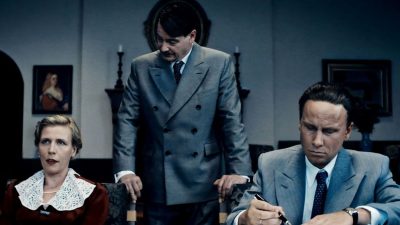
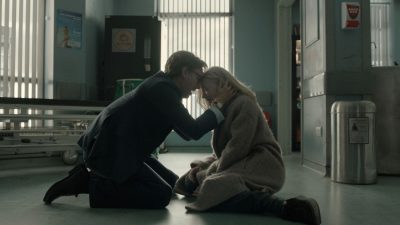


















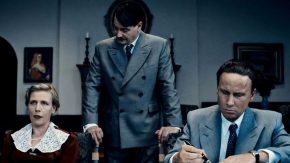
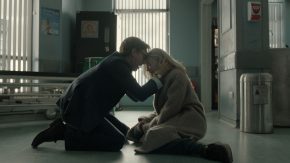



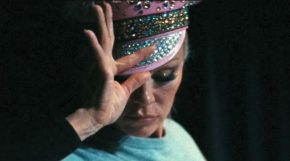
Comments
1 Responses to “Emőke Baráth: Hungarian opera singer under lockdown in Paris – An interview”
Thank you so much Emoke ,i love your singing and you as a person , i have played all that you sing here i Sydney Australia ,im a voncert violinist and violist ,renaisance music et baroque are my soules , i look forward to getting more from you , you and Jouresky have a terrific connetcive tissue, love it ,bravo ,